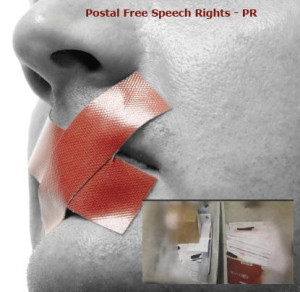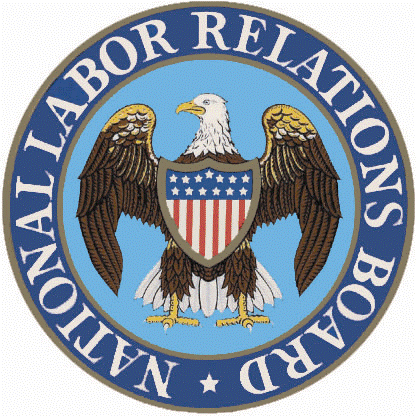 by Don Cheney, retired Local APWU President
by Don Cheney, retired Local APWU President
I would like to commend the postal employees in Cape Girardeau, Missouri for speaking out on the delay of their customers’ First-Class Mail. Federal Lawmakers call for action on delayed mail claims. Some of it was caused by the collection time of mail being moved up from 5 pm to 1:30 pm to allow for its transportation from Cape Girardeau to St. Louis. I find Vern Davidson’s quotes disturbing, “Postal Inspectors and OIG say, ‘We do not investigate service standard issues.’ A postal supervisor told me, ’‘We just have to pretend that mail isn’t here.’” Postal Service claims of no delayed First-Class Mail are a matter of public concern when there IS delayed mail, regardless of the cause or whether it is intentional.
Todd Kleffman, a reporter for The Advocate Messenger in Danville, KY, wrote recently, “It was impossible to learn how postal employees feel about the changes and how they impact the customers and communities they serve. Employees at the post offices in the area affected by reduced hours are prohibited from speaking with the media.” A restriction against speaking with the media exists only during work hours. The National Labor Relations Board has ruled that posting comments online and in social media outside of work hours are protected speech. Even if It Enrages Your Boss, Social Net Speech Is Protected
Postal employees should read the attached U.S. Supreme Court decision that is only two months old. The case is Lane v. Franks et al, U.S. Supreme Court, No. 13-483 (June 19, 2014). In a 9 to 0 decision, the U.S. Supreme Court held that truthful speech as a citizen is protected by the First Amendment, even when it relates to your public employment or concerns information you learned during that employment. Justice Sotomayor wrote, “Speech involves matters of public concern ‘when it can be fairly considered as relating to any matter of political, social, or other concern to the community,’ or when it ‘is a subject of legitimate news interest; that is, a subject of general interest and of value and concern to the public.’”
Postal employees, unlike other federal employees, also have protected rights under Section 7 of the National Labor Relations Act. The pending closure of the mail processing plant where you work affects “a working condition.” When discussing these matters with the public or the media, do it during nonwork hours. This is what the NLRB says about “Protected Concerted Activity:”
Is the activity concerted?
“Generally, this requires two or more employees acting together to improve wages or working conditions, but the action of a single employee may be considered concerted if he or she involves co-workers before acting, or acts on behalf of others.”
Does it seek to benefit other employees?
“Will the improvements sought – whether in pay, hours, safety, workload, or other terms of employment – benefit more than just the employee taking action? Or is the action more along the lines of a personal gripe, which is not protected?”
Finally, see the attached decision of the U.S. District Court for the District of Columbia that involves me, #1:92-CV-01942. A federal judge overturned a 14-day suspension that I lost in arbitration, because it violated the United States Constitution. “The Postal Service agrees that such suspension shall not be considered in any subsequent disciplinary action. The Postal Service further agrees to pay Mr. Cheney for all pay lost as a result of the suspension.” This court case is citable. I was represented by Mr. Darryl Anderson. Sadly, this court decision does not exist in APWU archives. The APWU did not begin scanning most old files before shredding them until the late 1990s.
Don Cheney
Retired Local APWU President
Auburn WA
Speaking out on the delay of their customers’ First-Class Mail? Really? Or maybe sabotage the system for your own self interests (please don’t close the place down and ship me off) and then claim whistleblower status and freedom of speech? We all know how employees can slow the place and pace down in order to cause delays thereby creating a self-fulfilling prophecy! We use to do it on the LSMS by putting letters on the tops of racks so the light in the machine would catch it and trigger the shut off of the machine. Would drive the bosses crazy and slow things down. Employees know how!
who do you work for no questions, no lies, be fair, be fair with who, you can’t be fair with the devils children.
Under the auspices of internet anonymity, many employees want to vent their frustrations but don’t because they don’t know exactly where their oath to the job stops. We all know about the Hatch Act, which controls what we may or may not do during elections, but this post is something all should read because it does give us the right to comment on work conditions, and management does not have any legal authority to stop or suppress anybody from commenting.
However, remember to be somewhat general in your comments. You can risk defamation and slander charges if real names are used without permission in a negative context. But don’t let anybody tell you that in your off time you can’t comment. Postal employees, like the NLRB states, are protected under the Freedom of Speech, too. The posts from Cape Girardeau were well done and stayed within the bounds of commentary protection. Maybe it will be employees who blow the lid off on managerial incompetence or corruption where those problems exist. But remember that not every supervisor or PM is a crook and a schnook. Be fair, as you expect them to be with you.